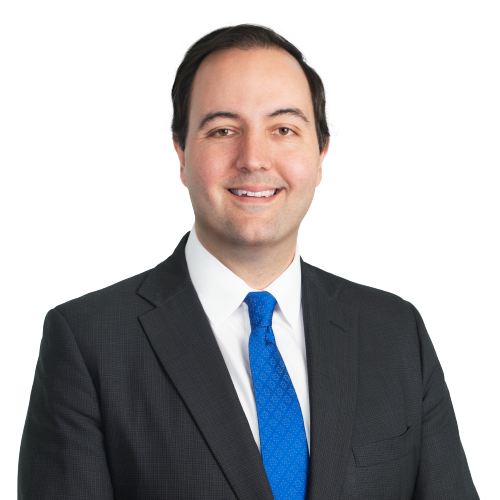Applying Article III Rulings to Robocall Standing in Florida
This article analyzes recent developments as to the following arguably open questions:
- What is the status of the 2019 Salcedo v. Hanna decision from the Eleventh Circuit after the U.S. Supreme Court implicitly rejected its Article III standing argument in TransUnion LLC v. Ramirez last year; and
- What impact has recent Article III case law had on Florida state and federal court filings under the TCPA and Florida's mini-TCPA, the Florida Telephone Solicitation Act?
Frater v. Lend Smart Mortgage — Court Rejects Argument That Salcedo Was Implicitly Overruled
U.S. District Judge Robert Scola rejected the argument that Salcedo was implicitly overruled by TransUnion, noting in Frater v. Lend Smart Mortgage LLC in the U.S. District Court for the Southern District of Florida in September that "Salcedo remains controlling law in this Circuit."
In Frater, the court considered and rejected the argument that "Salcedo and its progeny were overruled by implication by the Supreme Court in Facebook Inc. v. Duguid" in 2021.
The argument that the court rejected in Frater was also raised in a September dissenting opinion issued by U.S. Circuit Judge Kevin Newsom of the Eleventh Circuit in the en banc case Hunstein v. Preferred Collection & Management Services Inc.
Among other arguments, Judge Newsom pointed to the 2021 majority opinion in TransUnion v. Ramirez, in which the Supreme Court held that there is no automatic Article III standing in all Fair Credit Reporting Act cases.
Judge Newsom reached that conclusion by, among other things, contrasting the conduct implicated in such a case with the text messages at issue in the 2020 Gadelhak v. AT&T Services Inc. case in the U.S. Court of Appeals for the Seventh Circuit.
As the majority opinion noted in TransUnion, when writing for the Seventh Circuit in Gadelhak, then-U.S. Circuit Judge Amy Coney Barrett specifically rejected the Eleventh Circuit's Salcedo approach.
In a nutshell, the argument against Salcedo remaining controlling law went like this: Gadelhak rejected Salcedo's Article III standing approach; in TransUnion, the Supreme Court favorably cited Gadelhak's Article III standing approach; and therefore that means that Salcedo has, at least implicitly, been rejected.
Judge Scola rejected this argument in Frater. It remains to be seen whether the Eleventh Circuit will issue a published opinion in another TCPA case to help clarify the landscape.
Standing Concerns in Florida State and Federal Courts — the TCPA and the FTSA
Meanwhile, however, one of the issues raised in Justice Clarence Thomas' TransUnion dissent is taking center stage in a pair of cases pending in Florida state appellate courts.
In the lead dissent in TransUnion, Justice Thomas noted that just because a federal law violation cannot be brought in federal court does not mean that the claim cannot be brought in state court.
This has been a reality for TCPA text message litigation in Florida since Salcedo. In the last three years, hundreds of TCPA text message class actions have been filed in Florida state courts — and defendants have struggled to remove these cases to federal court.
The big question, therefore, is how the standing question for these claims will play out in Florida state court. These standing issues are also taking center stage under the FTSA.
For the most part, plaintiffs have prevailed at the trial court level when making these arguments in TCPA cases. In particular, the Florida state trial court decisions in Shedrick v. Kimbrell's of North Carolina Inc., Shinn v. ADCS Clinics LLC, Devivo v. Kolter Group LLC, Fridman v. My Cosmetic Surgery Inc., and Bonskin v. Multiphone Latin America Inc. all found that plaintiffs had standing to bring TCPA cases in Florida state courts.
On the other hand, a state trial court in Pinellas County, Florida, applied the federal Article III standing rules in Macias v. Ocwen Loan Servicing LLC in the Sixth Judicial Circuit Court of the State of Florida and found that, in bringing a claim under the federal Real Estate Settlement Procedures Act, an:
Allegation of a bare procedural violation … without pleading other salient facts related to a concrete harm or injury-in-fact, is not sufficient to confer standing to sue under the Federal regulations presented in Plaintiffs claim.
Salcedo was also cited with approval by the Eleventh Judicial Circuit Court of the State of Florida in Chihaia v. Go Giveaways LLC in February.
In Chihaia, the plaintiff brought claims for violations of Florida's civil racketeer influenced and corrupt organizations statute, common law unjust enrichment and negligent misrepresentations, and violations of Florida's gambling statute and federal unfair and deceptive practices as per se violations of Florida's Deceptive and Unfair Trade Practices Act.
However, relying on Salcedo, and other cases, the trial court found that the plaintiff's alleged injuries of wasted time in reviewing giveaway rules, a list of celebrities promoting a contest, complying with the rules of a contest, and following various Instagram accounts were not sufficient injuries to give rise to standing — even in Florida state court.
Toney and Eldridge: We Should Soon See Answers From Florida State Appellate Courts on Standing Issues in Robocall Cases
Earlier this year, the Fourth District Court of Appeal of the State of Florida issued a groundbreaking decision in Southam v. Red Wing Shoe Co., in which it essentially held that the Article III-like standard applied in state court. That decision concerned a claim under the Fair and Accurate Credit Transactions Act. However, the principles are quite broad.
There are now two cases pending in the Florida appellate courts on TCPA and FTSA claims that involve standing issues. The question at the center of these cases is whether the Southam standing standard will apply to TCPA and FTSA claims in Florida state court.
Specifically, in Toney v. Advantage Chrysler-Dodge-Jeep Inc., Judge Margaret Schreiber of the Ninth Judicial Circuit Court of the State of Florida held last year that there is no automatic standing in Florida state court for receiving prerecorded, telephonic, advertising messages to an individual — without first obtaining their written consent allegedly in violation of the TCPA.
This was at the motion to dismiss stage. Notably, unlike Macias, the state trial court decision in Toney was grounded in Florida state case law. That decision is on appeal to Florida's Fifth District Court of Appeal.
This decision contrasted with a decision issued by Judge Lourdes Simon of the Eleventh Circuit in Alvarez v. Sunshine Life & Health Advisors LLC, in which she held in April that there is standing on the same statute.
Judge Simon's decision followed a series of decisions in a single case on the same issue — standing for robocall cases — that was issued by Judge William Thomas, also of the Eleventh, in Eldridge v. Pet Supermarket Inc. in 2020. Judge Thomas' decision is on appeal to Florida's Third District Court of Appeal.
For robocall lawyers in Florida — both on the plaintiff and defense side — the importance of Toney and Eldridge cannot be overstated.
Reprinted with permission from Law360.


